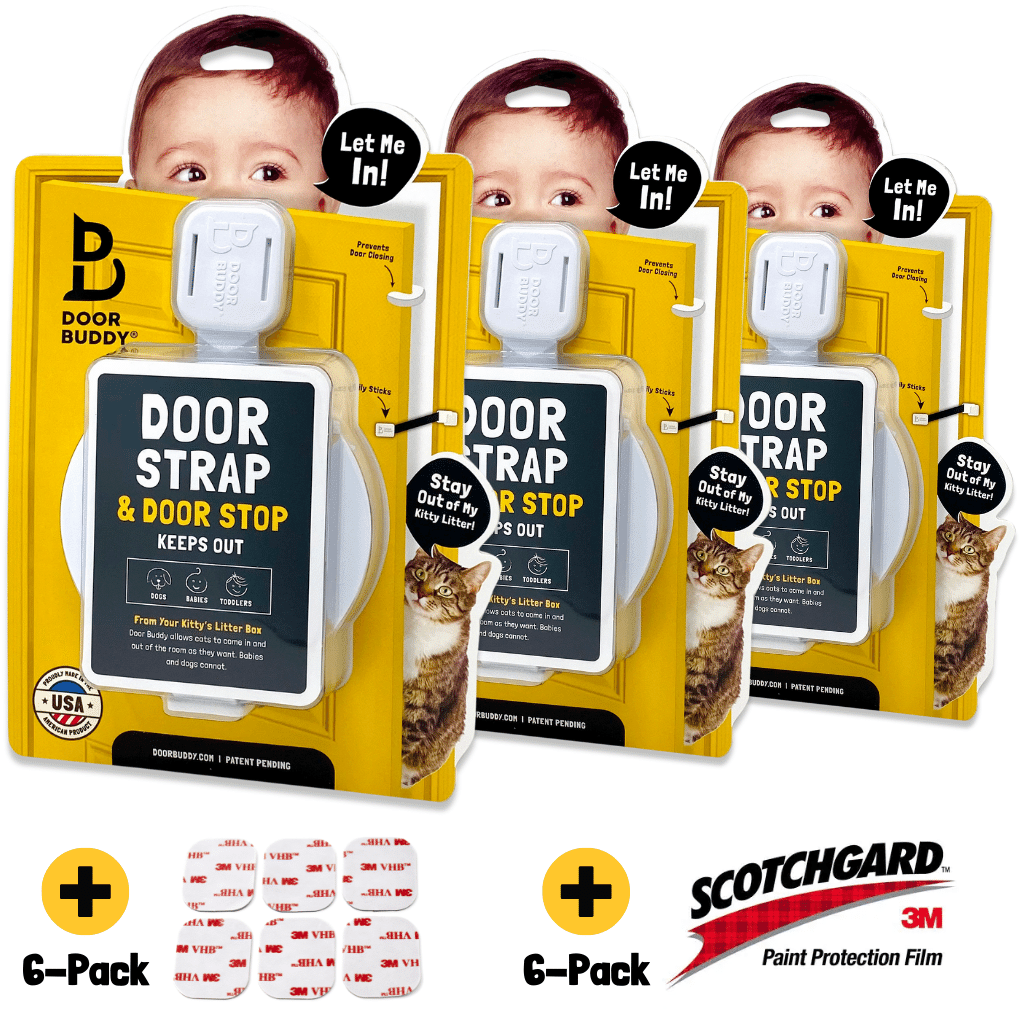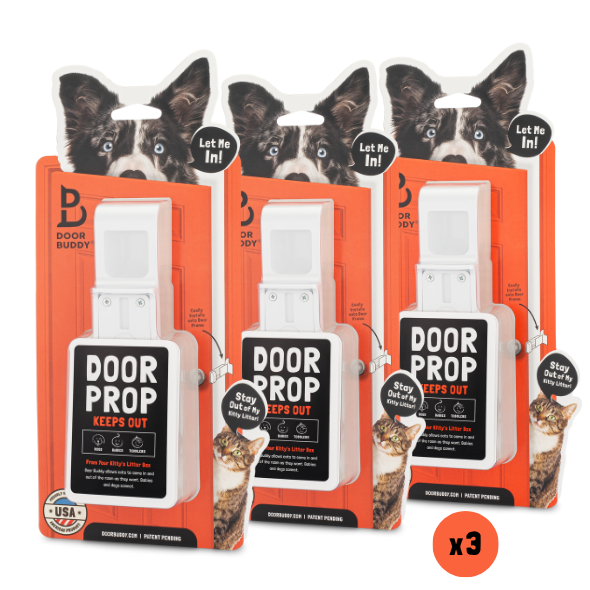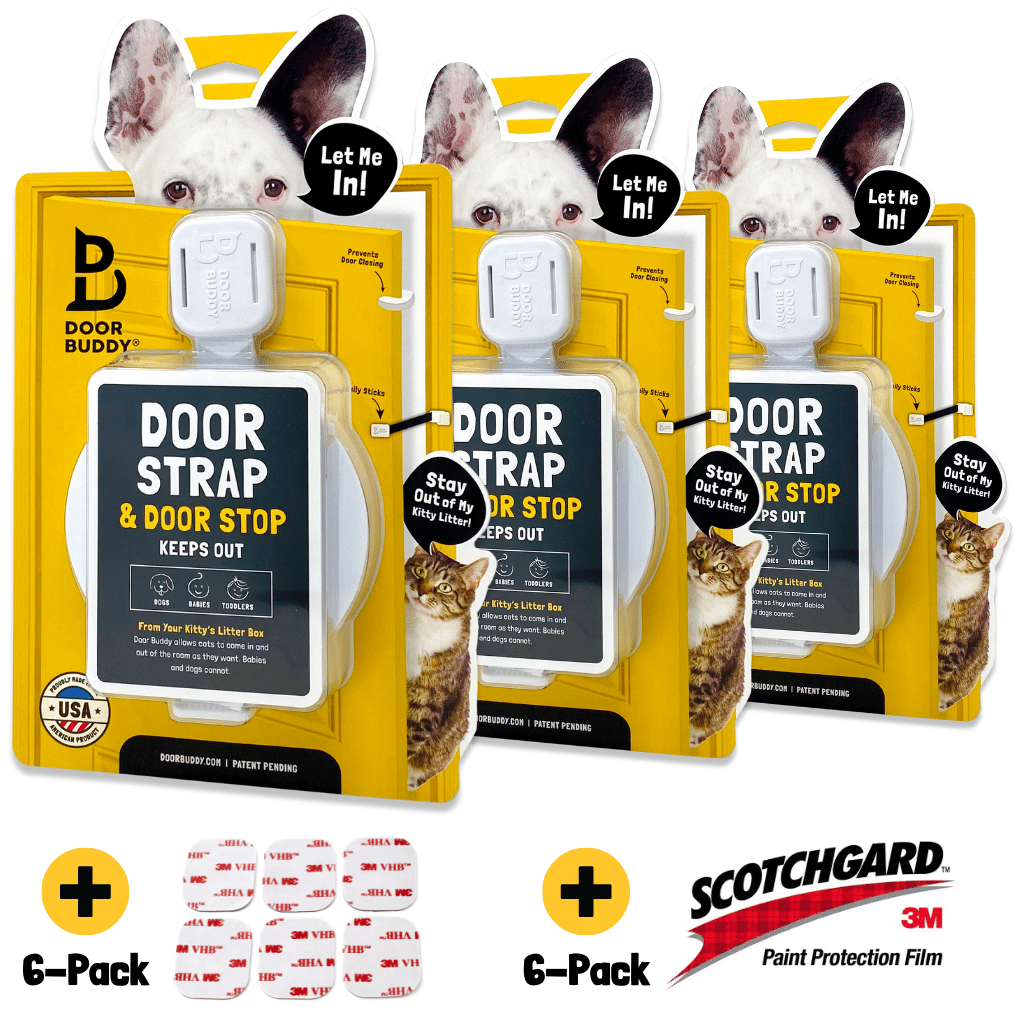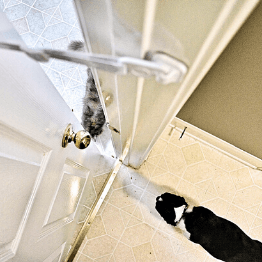CARING FOR CATS: REAL CAT ADVICE FROM ONE PET PARENT TO ANOTHER
By: Door Buddy Editors | Published: 5 November 2025

Being a cat parent is full of joys, challenges, and surprises. Caring for cats isn’t about getting everything right, it’s about patience, observation, and learning from their unique personalities. Over the years, I’ve gathered practical cat advice and tips that make life with our feline friends easier, happier, and more rewarding.
From creating a cat-friendly environment to understanding cats’ body language, feeding guidance, and litter box advice, this post is a collection of real-world insights meant to help both new and experienced cat owners. Consider it a friendly guide from one cat lover to another.
1. CREATING A CAT-FRIENDLY ENVIRONMENT
Cats are explorers by nature. Building a cat-friendly environment doesn’t mean buying every toy at the pet store, it’s about creating a space that feels safe and engaging.
When your cat first arrives, start with a single “safe space.” Add cosy blankets, hiding spots, and easy access to food and water. Gradually let them explore more rooms once they’re comfortable.
Cat-proof your home by tucking away cords, removing toxic plants, installing Door Buddy, and checking that windows are secure. If you’ve ever wondered how much space does a cat need, the answer is less about square footage and more about stimulation.
Think vertical, scratching posts, cat trees, and climbing shelves are perfect for both exercise and confidence-building. Cats love to perch high and observe their world (and you) like little furry philosophers.
Pro tip: If you’ve ever struggled with cat furniture and cats, give them a designated scratching spot early on. It saves both your couch and your sanity.

2. FEEDING AND NUTRITION: FINDING WHAT WORKS
Ah, the great cat food debate: wet or dry? Tuna or chicken? The truth is, every cat is unique, and part of your journey will be finding what works best for them.
Cat wet food can help with hydration, especially for cats who don’t drink much water. Dry kibble, on the other hand, is great for convenience and dental health. Mixing both can give you the best of both worlds.
Transition between foods slowly to avoid stomach upsets, and always make sure fresh water is available. Fountains can make drinking more fun and natural for your cat.
Above all, don’t stress if your cat turns up their nose at dinner. Advice for cats (and cat parents) is simple: stay patient, and listen to their preferences; they’ll tell you what works.
Curious about what’s best for your cat’s diet? Check out our blog on pet nutrition, it’s packed with tips from one cat parent to another.
3. THE LITTER BOX LOWDOWN
If you’ve dealt with litter box issues, you’re not alone. Every cat parent faces it at some point. The golden rule? One litter box per cat, plus one extra.
Place boxes in quiet, accessible areas, not next to noisy appliances or in tight corners. Experiment with litter types to find what your cat likes best. Some prefer natural textures, while others like clumping clay.
Clean daily (your cat will thank you), and if litter box issues with cats pop up suddenly, it could be their way of saying something’s wrong, whether it’s stress, territory, or a health issue.
4. UNDERSTANDING CAT BEHAVIOR
Cats have their own mysterious way of communicating, and learning to “read” cats’ body language is a game changer. A flicking tail can mean irritation, while slow blinks usually mean trust.
If your cat hides, don’t panic, sometimes they just need a moment. It’s important to give your cat space and let them come to you.
If you notice cat boredom, it might be time to switch up playtime. Rotate toys, add a puzzle feeder, or teach your cat a fun trick like sitting or high-fiving (yes, even older cats can learn!). Play keeps their mind sharp and your bond strong.
“It did a great job keeping our Grand Baby out of the litter. She was a little upset at first but then accepted she couldn't squeeze through. Now our dogs don't get litter snacks when we aren't there. We love how simple it was to install and how well it works.”
5. BUILDING TRUST AND BONDING
When it comes to building trust, slow and steady wins the race. Especially with shy rescues, your patience is everything.
Speak softly, establish routines, and offer affection on their terms. Cats value independence but also crave consistency. Over time, your cat will show affection in small, meaningful ways, a gentle nudge, a quiet purr, or choosing to sleep beside you.
If you’re new to pet parenthood, here’s advice for new cat owners: love your cat as they are, not as you expect them to be. And if you’re wondering whether two cats are better than one, the answer depends on your cat’s personality, some thrive on companionship, while others prefer to reign solo.

6. HEALTH AND VET ADVICE (IN PLAIN LANGUAGE)
I’ll be honest: cat vet advice can sound intimidating at first. But once you build a relationship with a good vet, it becomes second nature.
Routine checkups, vaccinations, and flea prevention are the foundation of good cat health advice. Discuss cat neutering early on, it’s not just about preventing kittens, but also reducing unwanted behaviors and health risks.
Pay attention to small changes in your cat’s appetite or behavior. They’re masters at hiding discomfort, so trust your instincts if something feels off.
7. WHAT NOT TO DO: COMMON MISTAKES CAT PARENTS MAKE
We’ve all made missteps along the way. Here are a few I learned the hard way, shared with empathy, not judgment.
-
Declawing the cat is never okay. It’s painful and can cause long-term harm. Instead, offer scratching posts and gentle training.
-
Don’t ignore sudden changes in behavior or litter habits - they’re clues.
-
Never punish a cat for scratching or hiding; it’s instinct, not defiance.
-
And don’t forget playtime! Skipping it leads straight to cat boredom and even stress.
The best cat advice I’ve ever received? Cats don’t need us to be perfect, they just need us to be present.
SHOP OUR BUNDLES
CONCLUSION: CARING FOR CATS: REAL CAT ADVICE FROM ONE PET PARENT TO ANOTHER
Everyone makes mistakes, sure, but each one has taught me something about patience, empathy, and unconditional love.
Caring for cats isn’t about control; it’s about connection. Observe them, learn from them, and celebrate the tiny moments , from the first purr to the midnight zoomies.
So tell me: what’s the best advice for cats (or cat parents) you’ve ever received? I’d love to hear your stories, from one cat lover to another.







